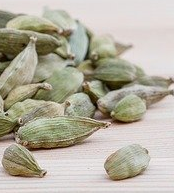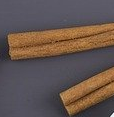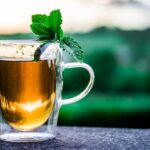In this blog post, I am going to give information about the origin of Hunza tea, the Hunza tea recipe, and its health benefits. After reading this full blog post you will get the following answer about “Hunza people”;
- Brief about Hunza people
- Living habit of Hunza people?
- The eating habit of Hunza people
- Origin of Hunza tea
- What is Hunza tea?
- How to make Hunza tea at home?
- When to drink Hunza tea?
- Benefits of Hunza tea
- Hunza tea side effects
Table of Contents
Hunza civilization
As per historical records, Hunza tribes are descendants of Greek soldiers, who settled in the Hunza area when Alexander left.
The Hunza people are well known for their long life and lived in the Hunza Valley at the extreme northwest of India in the Hindu Kush range, very close to Pakistan.
Hunza people are well known for their healthy life and disease-free body throughout their life time. The average age of Hunza people is more than 110 yrs.
Hunza people diet
Hunza people’s diet components include a range of fresh, seasonal, organic, and raw or lightly cooked vegetables (such as tomatoes, onions, garlic, spinach, turnips, carrots, pumpkins, cabbage, and cauliflower), grains (such as wheat, barley, buckwheat, and millet), fruits (such as apples, plums, mulberries, cherries, grapes, pomegranates, and peaches), and local nuts (such as apricots, almonds, walnuts).
The fruit, Apricot is very well known and it’s fruit was eaten raw in season and sun-dried for winter.
They do farming using organic compost devoid of pesticides.
Hunza tea is an integral part of their diet and the secret to their longevity.
Hunza tea origin
Hunza tea is one of the special kinds of tea being taken by the tribe of Hunza Valley, which is associated with several health benefits.
It originated in the Hunza Civilization which is the Indians living in the extreme northwest of India in the Hindu Kush range.
It consists of natural ingredients, namely mint, holy basil, green cardamom, cinnamon, and ginger along with jaggery and lemon juice.
Different components used in making Hunza tea are never been processed with chemicals, additives, or preservatives.
This natural drink forms an essential portion of the diet of the Hunza community.
Hunza tea ingredients
| S. No | Ingredients name | Picture of the ingredients |
| 1 | Mint leaves | 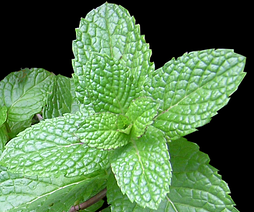 |
| 2 | Basil/ Tulsi leaves | 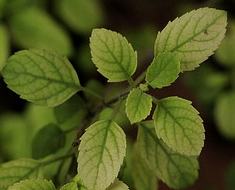 |
| 3 | Green cardamom | |
| 4 | Dalchini / Cinnamon |
|
| 5 | Ginger / Adarak | 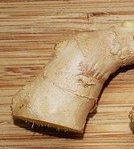 |
| 6 | Lemon | 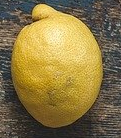 |
| 7 | Jaggery |
|
Hunza tea recipe
Equipment
- Saucepan
- Tea strainer
- Stove
Ingredients
- 4-6 Leaves Mint Leaves (Pudina)
- 4-5 Leaves Basil Leaves (Tulsi)
- 2 Piece Green Cardamom (Hari Elachi)
- 1-2 gm Cinnamon (Dalchini)
- 5 gm Fresh Ginger (Adrak)
- 5-10 gm Jaggery (Gur) (as per taste)
- 1/2 Piece Fresh Lemon Juice
- 2 cups Water
Instructions
- Place a saucepan on the stove at medium flame and add 250 ml water.
- Let the water come to a gentle boil.
- Add all the ingredient (except lemon juice) after crushing.
- Boil all the contents on the medium flame for 3-5 min.
- Add sweeter as per taste and left a side.
- Using tea strainer filter tea in small cups and add half piece of lemon juice in it.
- Enjoy this super drink by sip.
Nutritional value of Hunza tea:
Hunza tea is a low-calorie drink that is rich in several vitamins and minerals. Let’s take a look at the nutritional value of the ingredients used in Hunza tea:
- Mint leaves: Mint leaves are rich in vitamin C, vitamin A, and antioxidants. They also have a cooling effect on the body, which helps in reducing inflammation and aiding digestion.
- Holy basil leaves: Holy basil leaves, also known as tulsi leaves, are an excellent source of vitamin K, vitamin A, and vitamin C. They also contain essential oils that have anti-inflammatory and antimicrobial properties.
- Green cardamom: Green cardamom is a spice that is commonly used in Indian cuisine. It is rich in antioxidants and has anti-inflammatory properties. It also helps in improving digestion and boosting metabolism.
- Cinnamon: Cinnamon is another spice that is commonly used in winter drinks and desserts. It is rich in antioxidants and has anti-inflammatory properties. It also helps in regulating blood sugar levels and boosts metabolism.
- Ginger: Ginger is a root that is commonly used in traditional medicine to treat several ailments. It is rich in antioxidants and has anti-inflammatory properties. It also helps in improving digestion and reducing nausea.
- Jaggery: Jaggery is a natural sweetener that is made from sugarcane juice. It is rich in iron, calcium, and antioxidants. It also helps in boosting energy levels and improve digestion.
- Lemon juice: Lemon juice is a rich source of vitamin C and antioxidants. It also helps in detoxifying the body and aiding digestion.
Health benefits of Hunza tea:
- It is a kind of Super-drink.
- It is an anti-aging drink because it increases the skin’s glow and texture.
- Aids in weight loss: Hunza tea is a low-calorie drink that can help in reducing weight naturally. The herbs and spices used in the tea are known for their metabolism-boosting properties, which can help in burning calories and reducing body fat.
- Improves digestion: The combination of herbs and spices used in Hunza tea can help in improving digestion and reducing bloating. The tea also has a soothing effect on the stomach, which can help in reducing stomach discomfort.
- Reduces inflammation: Many of the ingredients used in Hunza tea, such as mint, holy basil, and ginger, have anti-inflammatory properties. Consuming tea regularly can help in reducing inflammation in the body and improve overall health.
- Boosts immunity: The herbs and spices used in Hunza tea are rich in vitamins and antioxidants, which can help in boosting immunity and protect the body against diseases.
- Regulates blood sugar levels: Cinnamon, one of the key ingredients used in Hunza tea, has been shown to help in regulating blood sugar levels. Consuming tea regularly can help in reducing the risk of diabetes and improve overall health. Thus, if it will be consumed regularly by a diabetic, will be helpful in controlling blood sugar.
- Improves cardiovascular health: The antioxidants present in Hunza tea can help in reducing oxidative stress and improve cardiovascular health. Consuming tea regularly can help in reducing the risk of heart disease and stroke.
- Enhances mood: The combination of herbs and spices used in Hunza tea can have a calming effect on the mind and body. Consuming tea regularly can help in reducing stress and anxiety and improve overall mood.
- Rich in the antioxidant
- Raises hemoglobin because jaggery is a good source of iron.
Hunza tea safety
As for safety is a concern, Hunza tea’s side effects are not recorded but one should avoid its excess intake.
During kidney transplantation, herbal tea seems to modify the cyclosporine metabolism considerably. Since Hunza tea is a kind of herbal tea, so maybe consumed in moderation under such conditions.
FAQ - Hunza tea
- Can we consume Hunza tea five times in a day?One should avoid its excess intake but in moderation one can take it 4-5 times a day.
- Can a kidney transplant patient drink Hunza tea?During kidney transplantation, herbal tea seems to modified the cyclosporine metabolism considerably. Since Hunza tea is a kind of the herbal tea, so may be consume in moderation under such condition.
- What are the exact quantity of the ingredients used in Hunza teaRead hunza tea recipe section.
- When to drink Hunza teaBest time to drink Hunza tea is morning at the place of the regular milk tea. In moderation it can be drink any time through out the day.
- What are the side effect of the Hunza teaSo far there is no recorded side effect associated with the hunza tea
- Hunza tea benefits in HindiIf you want to read Hunza tea benefits in Hindi, please select language Hindi from top right side.
- Hunza tea meaning in HindiIf you want to read Hunza tea meaning in Hindi, please select language Hindi from top right side.
Disclaimer: This content including advice provides general information only. It is in no way a substitute for a trained medical practitioner’s opinion. Always consult a specialist or your doctor for more information. We do not claim any obligation for this information.
Read a Web story on Hunza tea
Sources
Rainer Nowack, Barbara Nowak, Herbal teas interfere with cyclosporin levels in renal transplant patients, Nephrology Dialysis Transplantation, Volume 20, Issue 11, November 2005, Pages 2554–2556, https://doi.org/10.1093/ndt/gfi003
You may also like to know about Hunza apricot
You may also like to know about Herbal tea and its benefit of herbal tea!!!
You may also wish to read about Kahwa– a vibrant herbal drink from the Kashmir
